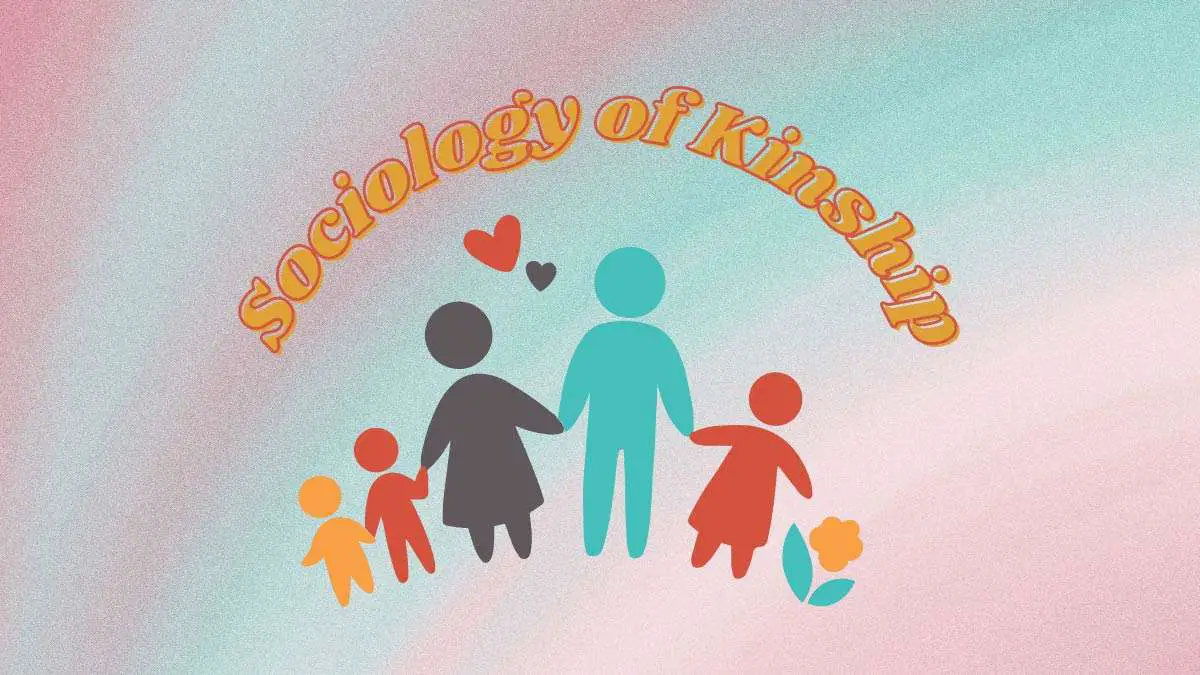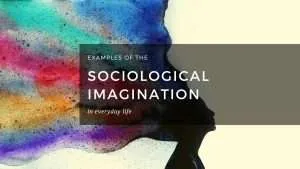What is the Sociology of Kinship?
The sociology of kinship examines the social structures, roles, and dynamics that govern human relationships based on family ties and kinship systems. Kinship serves as a fundamental social institution that shapes individuals’ lives and contributes to the broader fabric of societies. It encompasses the study of various forms of kinship, including biological, legal, and social ties, and explores how these relationships impact social organization, cultural practices, and individual identities.
Sociologists analyze kinship patterns, such as descent, marriage, and inheritance, to understand how they reflect and reinforce social norms, power dynamics, and gender roles. Additionally, the sociology of kinship explores the complex interplay between kinship and other social institutions, such as religion, economy, and politics, highlighting how kinship networks both shape and are shaped by broader social structures. By examining the diversity of kinship systems across different cultures and historical contexts, sociologists shed light on the intricate ways in which families and kinship relationships contribute to social cohesion, identity formation, and social change.
Teaching the Sociology of Kinship
Sociology of Kinship is a core course in most Indian universities, especially at the undergraduate level. This is also the case in the public university that I teach and I have had the privilege of teaching Sociology of Kinship twice.
During my second time teaching the course, after I had finished teaching Alfred Radcliffe-Brown’s introduction from his seminal book African Systems of Kinship and Marriage (1950), I noticed a lot of discontented faces in the classroom. So, it prompted me to ask if there was any issue. After a few moments of hesitation, one student asked, ‘what is the point of studying such old works about societies that do not make much sense to us?’ I paused and thought for a moment and then answered that ‘older works help us in historically theorizing and locating phenomena that exist across societies.’
This was not a solitary incident. Even when we do relatively recent texts like Gloria Goodwin Raheja and Ann Grodzins Gold’s Listen to the Heron’s Words: Reimagining Gender and Kinship in North India (1994), or Susan Martha Kahn’s Eggs and Wombs: The Origins of Jewishness (2004), students pose the same question about the relevance of texts that seem dated to them. One of them mentioned that ‘she was in search of the ‘contemporary’ in the course but could not really locate it.’ Others about why there was so much stress on studying Western and other societies. They asked ‘where India was in this course?’ Students express dissatisfaction with both the curriculum and the texts questioning their significance.
Rethinking My Syllabus
Therefore, I started thinking if it was indeed time to rethink the syllabus of the course on the Sociology of Kinship. And what new texts could be included in the course to make it more contemporary and interesting? This short essay is therefore an exploration in that direction. It is based on some recent works that I have read on the larger theme of kinship, especially in the Indian context. Coincidentally, they are all non-men writers.
Siblings and Kinship
The first book that I recommend is Katherine Davies’ Siblings and Sociology (2023). It demonstrates how siblingship, a form of kinship that has been often ignored by sociologists, shapes people’s lives. David Schneider’s work on American society changed the way kinship is understood with culture emerging as a major factor in future works.
Similarly, Janet Carsten’s work on relatedness furthers this analysis, as she challenges the mainstream understanding of kinship as biological. Grounded in theories of relatedness that Carsten espouses, Davies explores how cultural practices of siblingship are constructed. While Schneider and Carsten’s works are a part of the University of Delhi’s syllabus, Davies’ book can be a useful addition.
Aging and Kinship
Recent research shows that Indian urban couples are choosing to be either child-free or have only one child. This trend is prompted by reasons like precarity in the labour market, career uncertainty and rising expenses of raising children. There is also concern about the ageing population and their social, psychological and emotional issues. A sizable proportion of the older population in India now lives alone with their children residing in other cities.
Jagriti Gangopadhyay’s book Culture, Context and Aging of Older Indians: Narratives from India and Beyond (2021) explores the cultural constructions of growing old and the everyday processes of ageing. These developments that Davies and Gangopadhyay explore can be read in conjunction with each other and represent new trends in studies of kinship relations.
Gender and Kinship
One very critical theme in the Sociology of kinship is the relationship between gender and kinship. Existing sociological literature has looked at how kinship structures and processes become tools in promoting different forms of gendered violence (Das 1976; Dube 1997). But Julia Kowalski’s recent book Counseling Women: Kinship Against Violence in India (2022) takes a different trajectory.
She argues that an individualistic understanding of women’s rights makes already vulnerable women even more vulnerable. It ignores the reality of the social relations that shape lives within and beyond the family. Thus, the solution is not to dispense but build relations of interdependence with kins. For Kowalski, the role of family counsellors becomes particularly important in rebuilding kinship relations.
Technology and Kinship
I will end the essay by talking about how market forces and technological changes are playing a role in shaping kinship relations. In her latest work Changing the Subject: Feminist and Queer Politics in Neoliberal India (2022), Srila Roy takes note of how the influx of global funds has changed feminist politics. This changes how queer politics have been co-opted and the impact it has on issues of gender and kinship in the Indian context.
Technology is a huge part of neo-liberalism and the impact of artificial means of reproduction like surrogacy and IVF has been significant in Indian kinship systems. So Anindita Majumdar’s book Transnational Commercial Surrogacy and the (Un)Making of Kin in India (2018) can be useful in understanding the ramifications of foreigners hiring Indian surrogates on the surrogate and her family. Both Roy’s and Majumdar’s works have been able to capture the role that the market plays in shaping family politics in India.
Final Thoughts on Teaching the Sociology of Kinship
All of these works that I have mentioned represent different trends in kinship. This is by no means an exhaustive list and a very subjective position. However, I feel that including some of these recent texts in the syllabus can make the Kinship course more comprehensive, contemporary and interesting.
References:
- Das, Veena. (1976). Masks and Faces: An Essay on Punjabi Kinship. Contributions to Indian Sociology. 10 (1): 1-30.
- Uberoi, Patricia. (1994). Family, Kinship, and Marriage in India. Oxford University Press.
- Dube, Leela. (1997). Women and Kinship: Comparative Perspectives on Gender in South and South-East Asia. Tokyo: UNU Press.








